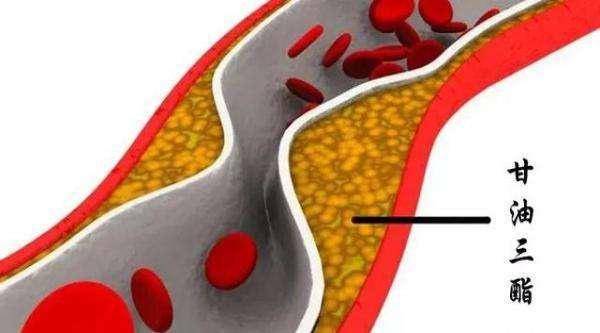With the improvement of living conditions, the number of people suffering from “rich diseases” is increasing. High blood pressure, high blood sugar, high blood lipids have become common, with the incidence of high blood lipids rising. Currently, the overall incidence of blood lipid abnormalities in Chinese adults has exceeded 40%, close to half of the population.
The main cause of blood lipid abnormalities is elevated triglycerides and cholesterol. Triglycerides are closely related to diet, often caused by heavy, greasy diets. Therefore, strict control of diet and cultivating good dietary habits can lead to improvement. Cholesterol is two-thirds synthesized in the body and one-third comes from diet. Attention to diet is essential to control cholesterol levels, especially for individuals with high blood pressure, as slight intake of high-fat foods can easily elevate indicators.
To lower these, exercise plays an essential role!
In terms of diet, it is recommended to:
1. Maintain a balanced, light diet, with low salt, sugar, and oil intake. Excessive intake of salt, sugar, and oil can make blood vessels fragile, harden them, thicken blood, and increase bad cholesterol.
2. Consume high-fiber foods. These foods can help improve cholesterol mechanisms, break down cholesterol, and reduce cholesterol levels in blood vessels. Examples include whole grains, miscellaneous grains, and potatoes.
3. Consume more soy products. Isoflavones in soy can break down excess cholesterol in the body and prevent high cholesterol levels. Soy milk, tofu, and vinegar-soaked black beans are ideal choices.
4. Rotate consumption of vegetable oils. Reduce intake of animal fats, including animal oils and offal, as they contribute to high cholesterol levels. Rotate consumption of plant oils and avoid sticking to one type only.
For cardiovascular protection, renowned cardiovascular disease expert and medical educator Professor Hu Dayi proposed several recommendations:
Protect blood vessels by walking more.
Professor Hu Dayi himself, over 10 years ago, weighed 92 kilograms with a waist circumference of 110 centimeters, had elevated triglycerides, fatty liver, borderline fasting blood sugar, and postprandial blood sugar elevation. Through walking 10,000 steps a day, all indicators returned to normal.
Exercise is the best way to protect blood vessels, reduce excess fat in the body, lower blood sugar, and cholesterol, especially triglycerides.
Hu Dayi suggests: Remember the “1, 3, 5, 7” in exercise: engage in physical activity once daily; each session should last no less than 30 minutes; exercise 5 days a week; maintain a suitable heart rate of 170 during exercise.
Of course, not everyone needs to walk 10,000 steps a day. It is beneficial for health to walk 5000-6000 steps according to individual body conditions.
Control hunger and reduce salt intake.
Professor Hu advises moderation in diet, eating only until 8/10 full per meal. No food is completely forbidden, just eat in moderation; controlling quantity is most important. Binge eating, overeating at each meal will harm the body and worsen blood vessels.
Consume no more than 6 grams of salt daily, reduce consumption of processed food, takeout, use less oyster sauce, monosodium glutamate, and more vinegar, garlic, mustard as seasonings. Consume more vegetables, fruits, whole grains.
For office workers dining out, avoiding heavy or greasy dishes, Professor Hu suggests learning from Professor Ma Changsheng, a cardiovascular disease specialist at Beijing Anzhen Hospital, who suggests, “Pour hot water over the dishes in the canteen before eating them.”
Drink a minimum of 1200ML of water daily.
Professor Hu always carries a water bottle with him when he goes out to ensure he can drink water anytime.
Pure water is the best “medicine” to dilute blood. Ensuring a daily intake of 1200ML of water is essential, along with water intake from food, totaling around 2000-2500ML.
When drinking water, sip slowly, drink in small amounts multiple times.
For many elderly individuals receiving intravenous drips during seasonal changes to dilute blood, Professor Hu deems this practice absurd. It not only harms the body but is also ineffective.
Quit smoking and drinking for good health.
The harm of smoking and alcohol to the body is well-known. Nicotine and alcohol harden, make blood vessels brittle, thicken blood, form plaques in blood vessels, and accelerate the process of arteriosclerosis. Whether it is smoking or drinking, any amount is harmful to health. The renowned medical journal The Lancet suggests that even a small amount of alcohol has health risks, there is no such thing as moderate drinking that is good for health—it is harmful in any amount.
Two actions to clean blood vessels, prevent blood clots, protect vascular health, and prevent illness.
[Jogging in Place]
Method: Relax shoulders, straighten the chest, pull in the abdomen, swing arms naturally, tiptoe, jog in place for 1 minute, repeat 3 times daily.
This action promotes blood circulation and can repair and expand blood vessels. It has a certain effect on preventing heart attacks and arteriosclerosis.
[Ankle Pump]
Method: Sit upright on the sofa, legs extended, hook toes back with force for 10-15 seconds, then contract foot soles with force and hold for 10-15 seconds, repeat 20 times. If there is no pain, do more repetitions.
Ankle pumping can enhance blood circulation in the lower limbs through ankle movement, effectively preventing blood vessel blockage and thrombosis.


